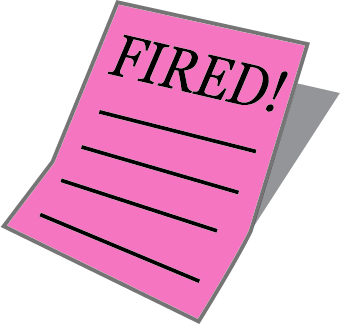Employer’s history of leniency does not bar termination for employee’s recent misconduct
Employers know the general rule, articulated through repeated warnings from their Directors of Human Resources and Employment Attorneys: Never terminate an employee immediately following a request for reasonable accommodation of a disability or a complaint of discrimination.
Close temporal relationship between an employee’s exercise of protected activity and an employer’s adverse employment decision is tantamount to a determination of indefensible employment retaliatory discrimination and a large award of back pay and damages. Michael P. Curley v. City of North Las Vegas,[1] however, is the exception to the rule.
In Curley, the Ninth Circuit Court of Appeals determined an employer’s history of leniency for employee misconduct does not necessarily bar termination of employment for the same or similar behavior.
Michael P. Curley, a former pretreatment sewer inspector for the City of North Las Vegas, filed complaints of discrimination with the Nevada Equal Rights Commission[2] (“NERC”) and the federal Equal Employment Opportunity Commission (“EEOC”). He also pursued a federal lawsuit against the City for alleged discrimination, retaliation and wrongful termination of employment for failure to accommodate a hearing loss disability in violation of the Americans with Disabilities Act (“ADA”).
Curley’s personnel file reflected numerous oral and written warnings. Though he had a long history of misconduct, the City did not suspend or terminate Curley until after he requested reasonable accommodation for a hearing loss disability and filed NERC and EEOC complaints.
Curley alleged a truck he operated exposed him to noise that caused hearing loss. He submitted two requests for accommodation and requested relief from all duties that required him to operate the truck. The City determined operating the truck was essential to Curley’s job, rejected his request for accommodation and recommended hearing protection.
Subsequent to his request for accommodation, Curley had altercation with a coworker. The coworker asked Curley to remove his hearing protection to discuss a work-related task. In response, Curley cursed the coworker and sarcastically asked if he was a doctor. Historically, the City would have done nothing more than give an oral or possibly a verbal warning for such misconduct. The City’s Human Resources Department, however, placed Curley on administrative leave and conducted an investigation into his behavior. The investigation revealed additional details of Curley’s behavior and the full extent of his history of misconduct.
In one instance, Curley implied he had mafia connections, threatened to place a bomb under a coworker’s car and throw a “blanket party” that involved tossing a blanket over a person’s head and beating him. In another incident, Curley threatened to shoot his supervisor’s children in the kneecaps.
The City’s investigation also revealed Curly conducted personal business and operated a private ADA consulting firm during work hours for the City. The investigation noted Curley spent up to three hours per business day advising individuals regarding potential lawsuits against their employers.
In his NERC and EEOC complaints and federal lawsuit, Curley alleged the City violated the duty of reasonable accommodation for his hearing disability and retaliated in violation of the ADA. In defense to provide a legitimate, nondiscriminatory reason for the termination, the City declared it fired Curley for failing to perform his job duties due to excessive personal phone calls, intimidating coworkers by threats of violence, conducting personal business on City work time and making disparaging remarks against his supervisor and the City. Curley replied by arguing the City’s defense was a pretext for illegal discriminatory and retaliatory conduct.
The United Stated District Court for the District of Nevada granted summary judgment in favor of the City. Curley appealed to the Ninth Circuit Court of Appeals. Curley argued the City’s decision to terminate his employment within two months of demanding reasonable accommodation for his hearing loss is evidence of pretext for illegal, discriminatory and retaliatory conduct. The Ninth Circuit Court of Appeals disagreed and declared,
It is true that very close temporal proximity between a protected activity and an adverse employment action can be sufficient evidence of a causal link between two . . . . But the new information revealed by the City’s investigation defeats any causal inference that might otherwise follow from the temporal proximity between his protected activity and his termination.[3]
The Court of Appeals affirmed the decision of the federal trial court and upheld the ruling in favor of the City.
Employers are wise to accept the Ninth Circuit’s opinion in Curley as an exception to the managerial rule against adverse employment decisions immediately following an employee’s request for accommodation of a disability or a complaint of discrimination. Notwithstanding the severity of Mr. Curley’s behavior, this federal court decision is a welcome application of judicial common sense.
[1] Cause No. 12-16228, D.C. No., 2:09-cv-01071-KJD-VCF, ____ F.3d. ____ (9th Cir., Dec. 2, 2014).
[2] The Nevada Equal Rights Commission is a sister agency to the Washington State Human Right Commission and the Oregon Civil Rights Division.
[3] Curley, at page 11.

